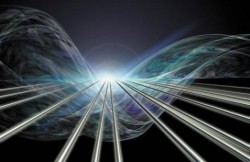May 18
8
Is Knowledge Power?
NOT Necessarily!
Many years ago I stumbled onto a secret which I share here: Both sides of every argument about anything contain some truth, but you can’t arrive at ultimate truth by approaching any one of several nuances or facets of the core argument logically.
The above statement has a tendency to start an argument. I can help anyone begin to accept the above statement as a possible bridge to truth for them, personally, if they are open to it, the point being the truth for them and not necessarily for anyone else, but particularly and most certainly not the truth for everyone else.
Each of us has a belief system, the tricky part of that little particle of (and, therefore, partial or tiny bit of truth) is offset by the fact that we don’t really believe it, but rather hope it is true because we can’t prove it to anyone else.
The person who believes that the better part of logic is contained within the following is throwing out a half-truth: “You can believe anything you want to believe.”
The first time I heard that statement was by an attorney who walked out of a small gathering of people slamming the door as he made his exit, angrily. He came back a week later after experiencing resurrection revelation and power for himself.* (see note at the bottom of page)
There’s power in believing and for those who believe in science, what they believe in is actually the practice of science. They are confident that the scientific process is a valid way of learning useful information.
To a lay person, the purpose of science is to discover answers and practical solutions to problems.
To scientists, especially academic researchers, their work is to ask deeper and more probing questions, to explore the unknown. The results of a good experiment (whether the original hypothesis is validated is unimportant), lead to a succession of new questions and studies which will enrich the body of what is presumed by scientists to be knowledge.
The conundrum comes with our expectations of science, and even rational logic, such as in software and algorithms. Scientists think in terms of probabilities. Laypeople want to believe in absolutes, because probabilities can be confusing. The nature of belief is certainty.
To prove the thesis of the power in believing is not proof, but rather a point of view and here’s just one example: Cellular phones and the Internet both came into existence AND became commercially viable by virtue of somebody believing long before it was popular – and it wasn’t until after the belief became widespread that both became commercial staples. That’s the power of belief.
Before anything …the design happens in the mind of one who believes it is possible; this isn’t the belief of knowledge from information of what is and has been, this is the revelation knowledge of what can and will be.
Therefore, we ask:
Is Knowledge Power?
Not Necessarily!
It actually all depends upon what you refer to as knowledge. There is all sorts of information that is promulgated as if it is knowledge and acted upon as though it were, but which is later proven to be misinformation and, therefore lacking as to both knowledge AND power.
*E- mail brad@spiritualhealingsource.com for the full true story


